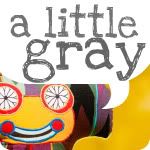I'm LOVING this video made by my cousin The Chef for several reasons:
It's so informative without a single word being spoken.
It sends a 'know where your food comes from' message without being snobby or hippy-esque.
It does not shy away from the fact that the food we eat was once a living, breathing animal - a fact that i feel gets lost in the pre-packaged, pre-seasoned, frozen, boneless, skinless, meat aisles of todays supermarkets.
Watch and tell me what you think!
Password: addington
I apologize in advance for the thousand links in this post.
There's a saying I'm sure you've all heard: "A baby changes everything". Its true, and one area i've really seen this change is my thought process about food. While i fear turning into some tree hugging hippie and the thought of a 'life-overhaul' feels a bit overwhelming, i've been doing a lot of research lately and have been making small changes.
1. Baby only eats organic, free range, grass fed, no hormones or antibiotics etc. He has from the start. I really haven't found it to be that difficult to homemake his baby food, as organic produce is readily available in all supermarkets and its a simple matter of blending it up in the food processor in large quantities and freezing the excess. As he gets older and moves to different foods, i have bought some organic baby foods and meat, which brings me to this:
2. Nobody is lying. Eating local, organic, and sometimes raw IS expensive. Ryan and I aren't in the financial position to be able to eat strictly raw/organic so instead we are trying to make better choices. The more research im doing the more i realize how badly i've messed up my body through eating processed foods full of hormones and chemicals. This article by Michael Pollan is a long fascinating read, but if you want to skip through all the history and science, start at page 11 for his 9 pieces of eating advice. i loved them.
and this:
"Today, a mere four crops account for two-thirds of the calories humans eat. When you consider that humankind has historically consumed some 80,000 edible species, and that 3,000 of these have been in widespread use, this represents a radical simplification of the food web. Why should this matter? Because humans are omnivores, requiring somewhere between 50 and 100 different chemical compounds and elements to be healthy. It’s hard to believe that we can get everything we need from a diet consisting largely of processed corn, soybeans, wheat and rice."
Back to the small changes/better choices:
I could be completely off here, but it's my opinion i can lessen the impact of pesticides in fruits and veggies by giving them a good scrubbing, peeling before consumption, cutting off the stems, etc. What i cannot do is remove the junk from meat and dairy, so that is where we've made the biggest changes.
We now buy....
Milk: Organic, grass fed, non-homogenized, no added hormones, whole milk. Yes, whole milk. Heres why. The milk i buy is vat pasteurized (the most gentle of methods) as it is currently illegal to sell raw milk for human consumption. However, there's a loophole im looking into! Simply put - you buy a share of a cow and pay monthly boarding fees, that way you're not "buying" the milk, its coming from "your" cow.
*If you take nothing else from the milk articles take this: READ THE LABEL! Look for vat pasteurized, lightly pasteurized, or just plain pasteurized before you by ULTRA pasteurized! At that point, the milk has been heated to a minimum of 280 degrees F - its so processed it has a shelf life of two months and doesn't even need to be refrigerated anymore!
Eggs: Local, organic, cage free, vegetarian fed, no animal by-products, no antibiotics, no hormones! Check out this short little video (The Chef strikes again!) that explains why. I really want chickens, and right now the issue of urban-chickens is up for discussion in my town. Fingers crossed it passes so i can have a few roaming around my backyard!
Chicken: organic, air-chilled, free-range, no animal by-products, no added water, no antibiotics, no growth hormones. I know, a lot of Chef videos, but i have yet to find a more succinct explanation.
Beef: same rules as chicken - only dry-aged instead of air-chilled.
Veggies: Organic when possible. Look and see if your area offers any Community Supported Agriculture (CSA) programs so you're getting super fresh foods and supporting local farmers.
Finally, two nights ago i got around to watching Food Inc. and if you haven't seen it you should, if only to hear the farmer with the big glasses talk about life. I want to visit his farm.
What are your thoughts on food?
Subscribe to:
Post Comments (Atom)





I loved the farmer with big glasses too!
ReplyDeleteI think we watched Food Inc at the same time!
Thanks for sharing.
So great.
What I've often found with vegetarian fed (for eggs) is that they're fed soy. I'm so over the consumption of soy! Haha.
There's this terrific book I'm reading. Real Food for mother & baby by Nina Planck. Have you read it? You should if you haven't! It's got a lot of roots in Nourishing Traditions, and it's GREAT!